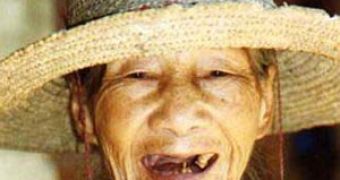Indeed, grandparents may not be very funny. And a new research brings up scientific support for the idea that older adults have a harder time understanding jokes, fact which deepens with age. It appears that older adults could have greater difficulties when it comes to their cognitive flexibility, abstract reasoning and short-term memory, facts that make them also have greater difficulty in comprehending humor.
The team made by graduate student Wingyun Mak and Brian Carpenter, psychology professor at Washington University, checked about 40 healthy subjects over 65 and 40 undergraduate students; the subjects were tested and had to complete jokes and stories. They also had to choose the right line for verbal jokes and choose the funny ending to series of cartoon panels. "The younger adults did 6 % better on the verbal jokes and 14 % better on the comic portion than did older participants," said Mak.
The verbal joke test was developed in 1983 and employed in other humor studies, but Mak came with a new element, by showing participants cartoons from the Ferd'nand comic strip, and putting them to select between four panels to locate the funny ending. Three of the choices for each cartoon were incorrect, made by an artist for the study.
"This wasn't a study about what people find funny. It was a study about whether they get what's supposed to be funny. There are basic cognitive mechanisms to understanding what's going on in a joke. Older adults, because they may have deficits in some of those cognitive areas, may have a harder time understanding what a joke is about." said Carpenter.
"Humor is rooted in the philosophical notion that arises from a sense of incongruity, a conflict between the expected and the actual. Successful comprehension of humor occurs upon resolving something that is seemingly incongruous with a logical but less obvious explanation."
"I think it's really important to note this doesn't mean older adults aren't funny or don't understand humor. In fact, older study participants who may have picked the wrong answers may also have been laughing at their choices at the time," said Mak.

 14 DAY TRIAL //
14 DAY TRIAL //